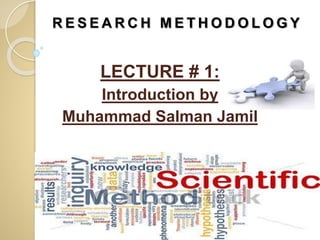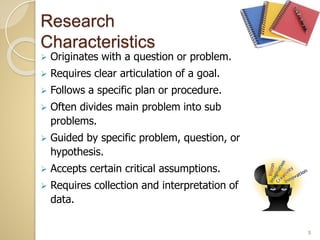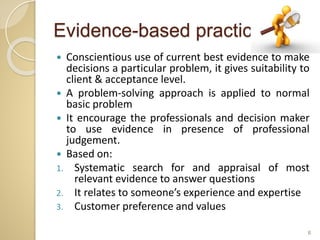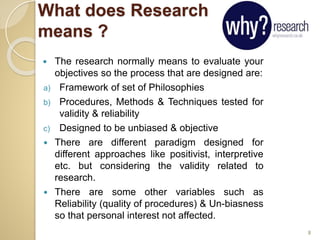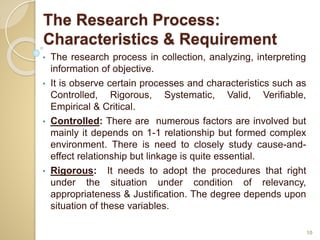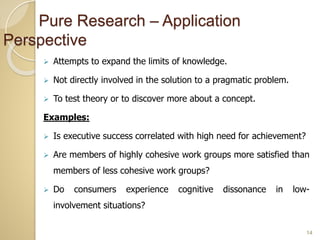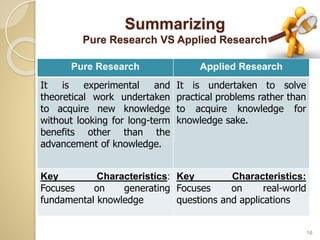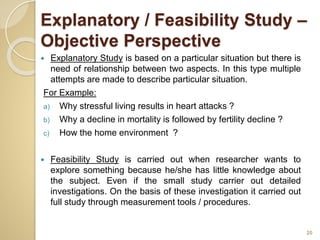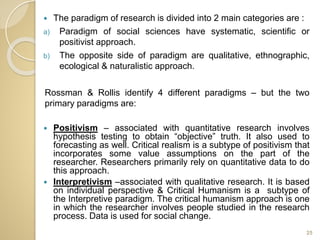This document provides an overview of research methodology. It defines research as the systematic investigation into and study of materials to establish facts and reach new conclusions. Research has certain key characteristics including being guided by a specific problem or question, following a plan or procedure, and requiring the collection and interpretation of data.
There are different types of research categorized by their application, objectives, and mode of inquiry. Pure research aims to expand knowledge without looking for long-term benefits, while applied research is undertaken to solve practical problems. Descriptive research provides an accurate portrayal of a situation or group, while explanatory research looks at relationships between variables. Structured research uses objective designs and questionnaires, while unstructured research focuses on interpretation.
